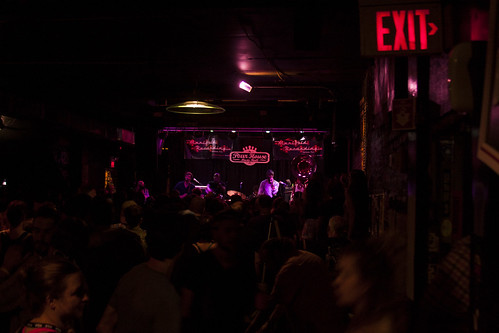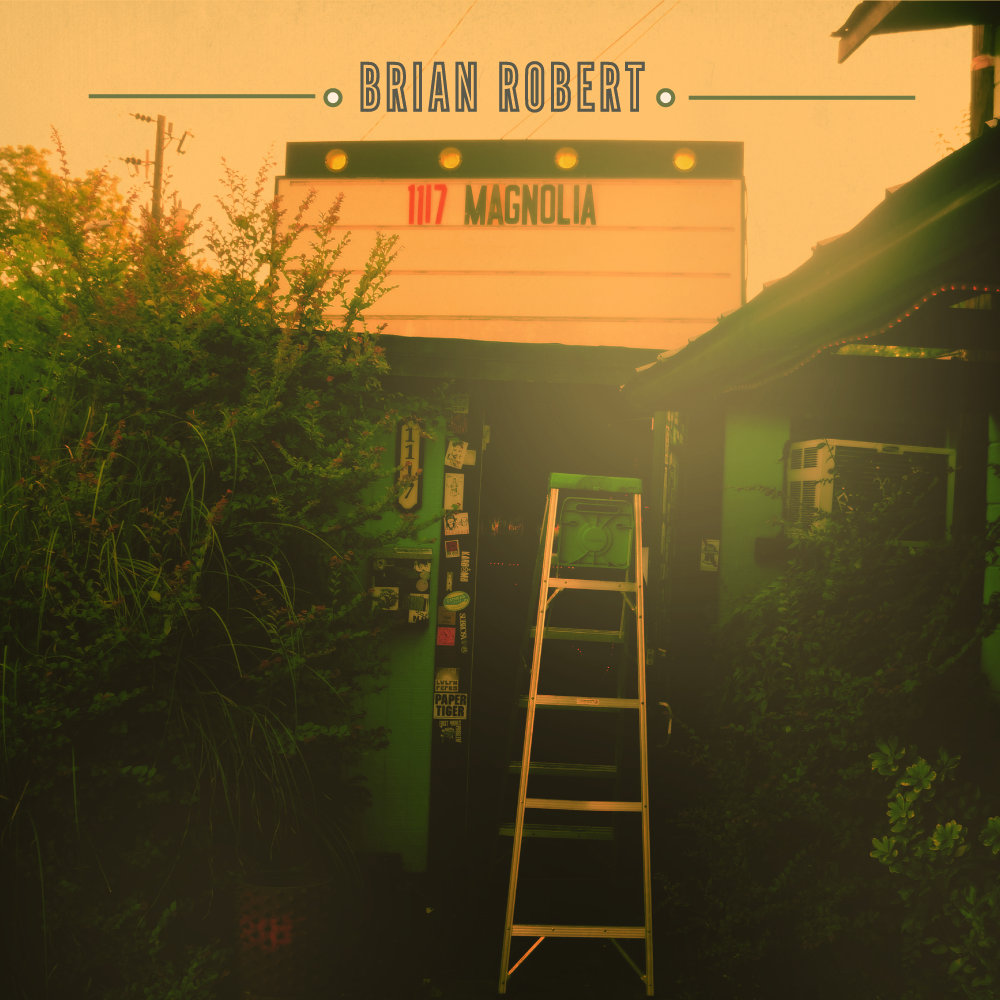 Jasper asked Free Times music editor emeritus, Those Lavender Whales guitarist, and Hopscotch veteran Patrick Wall to go the festival and gives us his thoughts. This, in three parts, is what he wrote.
Jasper asked Free Times music editor emeritus, Those Lavender Whales guitarist, and Hopscotch veteran Patrick Wall to go the festival and gives us his thoughts. This, in three parts, is what he wrote.
Part I is here; Part II, here.
--
I’m pretty sure I was lost somewhere in William Basinski’s haunting and ethereal tape loops and drones at Nash Hall when I checked my phone to a litany of tweets and texts about the life-affirming set Savannah metal band Baroness was throwing down at Lincoln Theatre.
As Hopscotch has expanded and broadened its rock ‘n’ roll offerings, I’ve moved away from them more. Saturday offered plenty of stellar rock options, and, indeed, I caught many of them: the Impressionist soundscapes of 1970s Film Stock; the nervy, rumbling post-rock of Maple Stave; the chirping indie rock of Mac McCaughan; and, later, the warped psych-rock of ET Anderson.
The final day of Hopscotch is the hardest, the final hours especially so. The fatigue from a long Thursday evening followed by back-to-back all-day marathons hits in full force around the time the club shows start on Saturday night — or earlier, if you’re unlucky (or, like me, aging). A band like Baroness, one that’s loud and determined and that melds accessible hooks onto corrosive metal, makes it worth pushing through those final few hours.
But as I get older, I find I no longer need that shot of insurgent energy dangled like a carrot at the end of my night. I no longer find moments of affirmation in bleary, blustery solos or colossal walls of distortion. (As much as I might still like either.) Instead, at Hopscotch, I find them in other places, and in smaller moments.
Patrick Haggerty of Lavender Country didn’t play too much material in the early part of his set; his backing band — comprising members of fellow Paradise of Bachelors bands Promised Land Sound and Gun Outfit — mostly stood idle as he told long, engrossing stories about growing up gay in rural America. It was particularly given how timely Haggerty’s stories of struggling for gay rights felt in the current political climate.
Seeing William Basinski at Nash Hall was about as exciting as one would imagine. Dressed something like a cartoonish representation of spaceman come to earth in oversize sunglasses and a sparkly purple sportscoat, Basinski mostly stood motionless over his setup of two tape machines and a laptop. Occasionally, he’d bend over and tweak a knob. Sometimes, he’d just sit down and lean back. But the gauzy drones his machinations were producing were a hypnotic treat — a sort of lullaby that seemed to me just as fitting a way to close out a festival of mesmeric wonders as any ballistic metal band.
As is my tradition, I ended with a brass band — The Stooges Brass Band, which wound up the would-be winding-down crowd Kings Barcade — to burn off what little energy I had left. Baroness, I was told, was still raging just down Wilmington Street; their first encore wouldn’t come until at least 2 a.m., I’d find out later. And there was an afterparty, too, that some friends from Charlotte told me about that was to be DJed by Sylvan Esso.
Still, I was sated. I had no need to push through anymore. Instead, I biked back to the hotel, got stoned with a friend, and went to sleep. It was the earliest I’d turned in on a Saturday night cum Sunday morning since the first Hopscotch festival in 2010.
+++
Sunday morning, I took my sister to the airport. She’s lived in the Triangle for about as long as Hopscotch has been around; if I don’t stay with her during the festival — I haven’t for several years, as the drive from Carrboro to Raleigh is a long one (and especially ill-advised if you Hopscotch as hard as I used to (buy me a beer sometime, and I’ll tell you about the worst driving decision I’ve ever made; it involves Hopscotch, Drive-By Truckers and weed treats)) — we get together for brunch on the Sunday morning after.
Invariably, we end up at a Whole Foods, and, invariably, she asks me what my favorite act of the festival was. Invariably, I freeze at the question. Invariably, I stammer through an answer, even though, as I’m giving it, I know whatever response is fumbling out of my mouth is variable. I know I will invariably give a different answer every time someone asks me.
I prefer to take, especially these days, Hopscotch as a whole, to judge the festival holistically as an end-to-end experience. (Indeed, trying to justify Hopscotch’s ticket price with just one set would be incredibly silly.) I have, I suppose, more regrets about this Hopscotch than any other. Yes, missing Erykah Badu and Young Thug were disappointing. But waiting around for either would have effectively eaten up all of Friday night, and I’d have missed two of my favorite sets in Dai Burger’s and Julien Baker’s stunner at Nash Hall. Yes, if I’d had to do it over again, I’d have traded the disappointing Television for the avuncular 12-string slide guitar of Don Bikoff, or the good but enervating metal band Cobalt for DJ Spinn and the Era Footwork Crew. Or maybe I’d have braved the maddening horde of young, hip white people waiting in line to see bounce queen Big Freedia. Or stayed for those last few minutes of William Basinski’s dissolving drones.
I’m 34 years old, now, and growing up, I’ve realized, is recognizing — and maybe even embracing — your faults and your flaws. And maybe Hopscotch is, too. For all its flaws and foibles, Hopscotch still offers a lot to the music lover with a broad palate and appetite for live performance. And for as much as it’s changed and for all its foibles, Hopscotch hasn’t lost what makes it a great — essential, even — festival.
So has Hopscotch changed more, or have I?
Yes.
Patrick Wall is music editor emeritus of Free Times. He now lives in Winston-Salem, North Carolina, where sometimes people pay him to write things. He is carbon-based.


